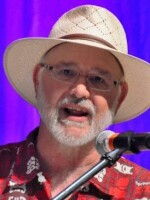As KSMU's Sense of Community Series on the State of Civility In Our Community winds down, we're looking back several years at a then forward looking, and now on-going initiative. Be Civil Be Heard is designed to encourage and incorporate civil engagement in our community.
Elizabeth Dudash Buskirk, is a Communications Professor at Missouri State University, and Curator of Be Civil Be Heard, a not-for-profit partner of the Community Foundation of the Ozarks, currently administered out of the MSU Center For Community Engagement. Dudash-Buskirk says the concept for Be Civil Be Heard, came after a series of contentious Springfield City Council meetings, several years ago: “I think it was somewhere between eight and ten years ago, the City Council and others in Springfield, really wanted to get a grip on having community conversation that was more civil than what was occurring. They felt the city conversations were really problematic.”
Elizabeth Dudash Buskirk says Be Civil Be Heard sprang from the Springfield-Greene County Civility Project: “In the National Civility Project, member cities all over the country use each other for resources in finding ways to encourage civility in our own cities, but each city takes on its own personality, adapts to its own audience and community for what the community needs.”
So with interest from Springfield City officials, and support from the Community Foundation of the Ozarks, Be Civil Be Heard, was born. Dudash-Buskirk: “You can’t expect people to be civil automatically, and you can’t expect to be heard if you don’t listen first, so they started this cyclical model of: If you listen, and then you’re civil, then your message will be heard.”
A model based on 10 Tenets of Civility, painstakingly crafted over a several month period by the Springfield-Greene County Civility Project: Be Attentive; Acknowledge Others; Be Inclusive; Listen; Respect Other Views; Speak Out With Courage; Act With Compassion; Give And Accept Constructive Feedback; Treat Your Environment With Respect; Be Accountable.
“And essentially for many years” says Dudash-Buskirk, “these 10 tenets’ existed at City Council meetings, at the Community Foundation of the Ozarks, and elsewhere. Most recently Springfield City Manager Greg Burris, before President Trump visited, mentioned the 10 tenets in a letter to the editor of the Springfield News-Leader.”
In a separate interview, Burris had previously told KSMU “The whole point of my letter was to let, not only our own citizens, but also knowing people would travel here from all over the country to see the President, what our expectation is for their behavior as well. We don’t have much control at the National or State level, but we do have some control locally to set the expectation, and make the ask. And what we were doing with the letter to the editor, was to make the ask.”
Be Civil Be Heard has also been adopted by local youth groups and area schools, and Dudash-Buskirk says BCBH has some other irons in the fire as well: “On the web site, (becivilbeheard.org) if you go under What We Do, we have several things. Number one, we have a blog that anybody can contribute to. We also have a program called Soup and Civility, where I sponsor a lunch or dinner-time soup and bread event where we ask the community members to talk about what problems they see in the community, and then propose potential solutions. Nothing may get done that day, except we’ve had a conversation that is civil, about their issues in the community, and we’ve built community together. A very similar program is called Table Top Talks. It’s not conflict negotiation or resolution, it’s merely allowing people the space to speak their ideas, and hopefully come to conclusions themselves. So we do projects where we believe we give platforms, opportunities and space, to speak.”
Projects and events, Says Dudash-Buskirk, which are Civility Certified: “Civility Certified means my team of people will show up, hand out the 10 Tenets of Civility, ask people to follow the 10 Tenets if they are going to speak, and they do not, we ask them not to take part in the conversation. That insures protection for everybody, and opportunity for everybody in the room to speak freely and safely.”
For information about BCBH, a non-profit partner of the Community Foundation of the Ozarks, administered by the Missouri State University Center For Community Engagement, www.becivilbeheard.org of www.cfozarks.org



